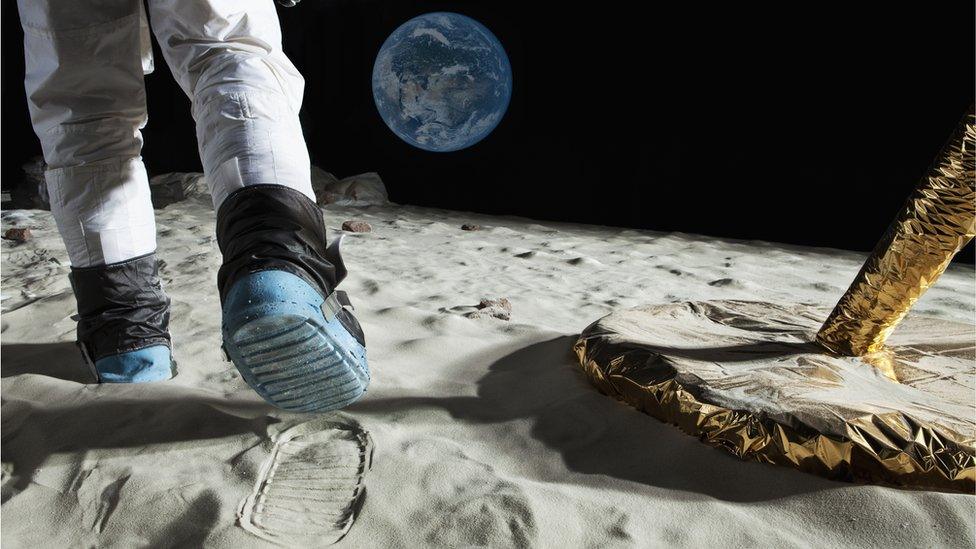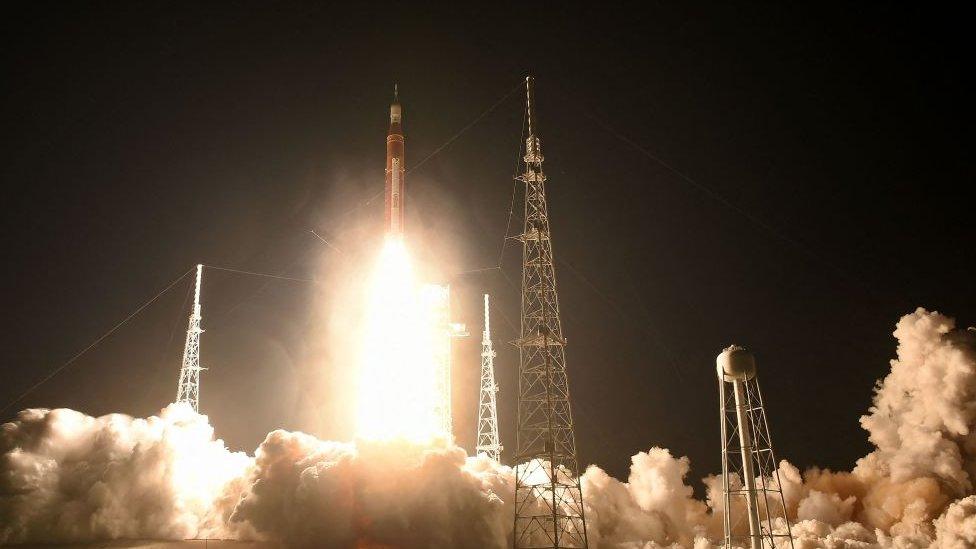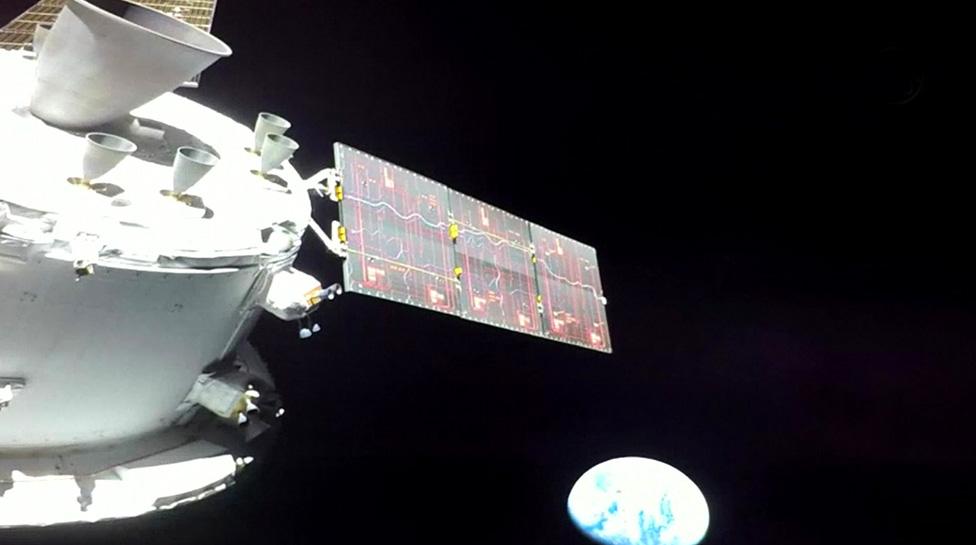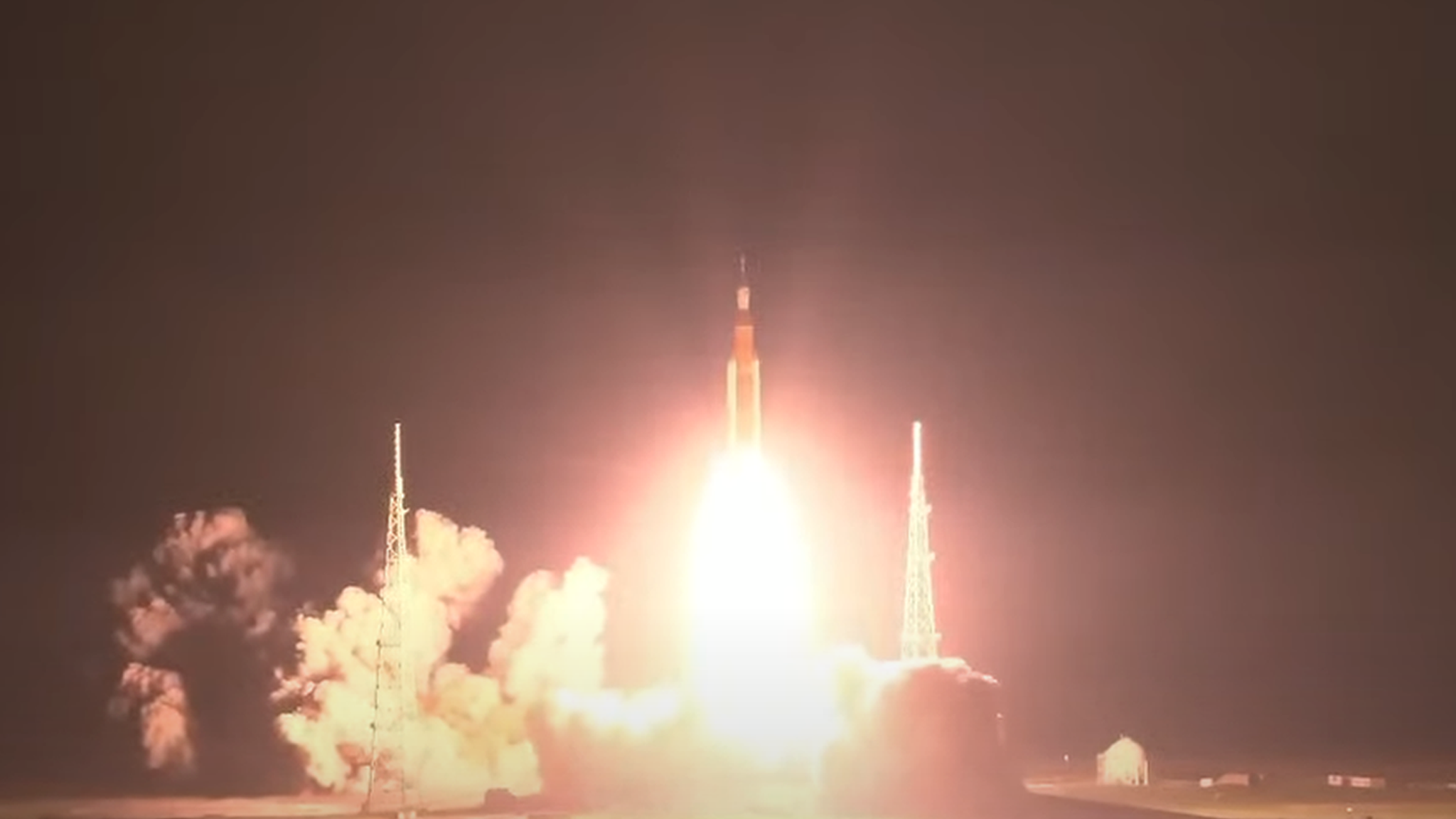Humans could live on the Moon in next eight years, Nasa says
- Published
- comments

Humans could live on the Moon during this decade, a Nasa official has told the BBC.
They wouldn't be living there permanently, but could stay for long periods to carry out scientific research.
Howard Hu, who leads the Orion lunar spacecraft programme for the agency, said they would need to create homes on the lunar surface to support scientific missions.
On Wednesday the Artemis rocket was successfully launched, which Mr Hu called an "historic day for human space flight".
Atermis carries Orion, a spacecraft which is planned to take astronauts to the Moon and other planets in the future.
There are no astronauts aboard currently but it is equipped with a model person which researchers will use to register the impacts of the flight on the human body as part of its first mission.
Orion is currently about 134,000km (83,300 miles) from the Moon.

The 100m-tall Artemis rocket blasted off from the Kennedy Space Center as part of Nasa's mission to take astronauts back to Earth's satellite.
Mr Hu said it was the first step towards long-term deep space exploration, for not just the United States but for the world.
He said: "I think this is an historic day for Nasa, but it's also an historic day for all the people who love human space flight and deep space exploration.
"I mean, we are going back to the Moon, we're working towards a sustainable programme and this is the vehicle that will carry the people that will land us back on the Moon again."
What needs to happen before humans can go back to the Moon?
If the current Artemis flight was successful then the next would have a crew onboard, followed by a third where astronauts would land on the Moon.
This would be the first time for Nasa since Apollo 17 50 years ago in December 1972.
The Orion capsule is due back on Earth on 11 December.

The Orion capsule looks back towards the Earth
Mr Hu said the current mission was proceeding well, with all systems working and the mission team preparing for the next firing of Orion's engines at lunchtime on Monday to put the spacecraft into a distant orbit of the Moon.
Once the safety of Artemis's equipment and systems have been tested and proven, Mr Hu said the plan was to have humans living on the Moon "in this decade".
Why does Nasa want to send people back to the Moon?
A large part of the reason for going back to the Moon is to discover whether there is water at the satellite's south pole.
This is because it could be converted to provide a fuel for craft going deeper into space - to Mars, for example.

Howard Hu is in charge of the Orion spacecraft
"We're going to be sending people down to the surface and they're going to be living on that surface and doing science," Mr Hu said.
"It's really going to be very important for us to learn a little bit beyond our Earth's orbit and then do a big step when we go to Mars.
"And the Artemis missions enable us to have a sustainable platform and transportation system that allows us to learn how to operate in that deep space environment."
- Published16 November 2022

